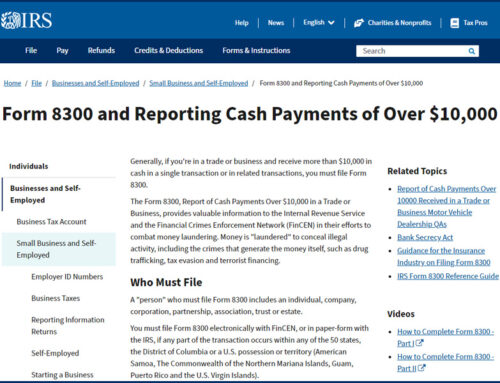The ongoing federal prohibition of cannabis continues to ripple through the U.S. business landscape, particularly for state-legal marijuana companies seeking financial relief during the COVID-19 pandemic. A recent federal court ruling in Washington State has solidified a harsh reality for these businesses: their access to key pandemic-era tax credits is blocked under the Internal Revenue Code’s Section 280E, a provision originally designed to prevent drug traffickers from claiming business tax deductions and credits.
Section 280E and the COVID-19 Relief Landscape
Section 280E of the Internal Revenue Code prohibits businesses engaged in the “trafficking” of Schedule I or II substances — including cannabis, despite its legal status in many states — from claiming most federal tax deductions and credits. While the provision has long frustrated cannabis entrepreneurs by forcing them to pay taxes on gross income (minus the cost of goods sold), its reach now extends to pandemic relief efforts.
The Employee Retention Credit (ERC), established under the CARES Act, was designed to help businesses keep employees on payroll during COVID-19 shutdowns. For most industries, the ERC provided a lifeline, offering refundable tax credits to offset payroll costs. However, in a May 2024 decision, the U.S. District Court for the Western District of Washington ruled in Solstice Holdings v. U.S. that Section 280E applies not only to income tax deductions but also to refundable tax credits like the ERC. The court rejected arguments that 280E was limited to income tax, stating that “nothing in the plain text of Section 280E limits its application to income tax credits” (Marijuana Moment, 2024).
Legal Uncertainty and Industry Impact
This ruling is significant for several reasons. First, it is the first time a court has explicitly addressed the application of Section 280E to the ERC, setting a precedent that the IRS may reference nationwide, even though the decision technically only binds courts within the Ninth Circuit. Second, the ruling underscores the legal limbo in which state-legal cannabis businesses operate, as they remain subject to federal restrictions that other industries do not face.
Many cannabis businesses applied for the ERC during the pandemic, often encouraged by aggressive marketing from third-party promoters. Some even received credits before the IRS clarified its position. However, as legal experts from Holland & Hart and GreenspoonMarder point out, the IRS has since ramped up scrutiny of these claims, warning cannabis companies that they may face penalties for improperly claiming federal tax benefits (Holland & Hart, 2023). The IRS has even established a special process for businesses to withdraw ERC claims if they are uncertain about eligibility, highlighting the risks involved.
Industry and Regulatory Responses
The cannabis industry’s exclusion from federal relief programs is not new. Cannabis companies have long been barred from traditional banking services, federal small business loans, and now, pandemic tax credits. This has led some states to step in with their own forms of tax relief, but these measures are limited by the overarching federal prohibition.
Hopes were high, no pun intended, during the Biden Administration that cannabis would be rescheduled. However, with recent Trump appointees for Drug Czar and DEA Administrators, coupled with movements by the House Appropriations committee to remove a budget rider protecting state-regulated marijuana programs, the landscape for federal cannabis reform has become increasingly uncertain (Forbes, 2024). Until federal law changes, cannabis businesses must navigate a complex and often punitive tax environment.
The Broader Implications
The recent court decision is a stark reminder of the challenges facing the cannabis industry. While other businesses were able to access billions in federal aid to weather the pandemic, cannabis companies were left to fend for themselves, despite being deemed “essential” in many states and facing increased operational costs due to public health restrictions.
Legal and tax professionals continue to advise cannabis businesses to conduct thorough analyses of their eligibility for any federal tax benefits and to work with trusted advisors to avoid costly penalties. The industry’s ability to grow and compete fairly with other sectors remains hampered by outdated federal laws, even as public opinion and state policies continue to evolve.
Conclusion
The intersection of federal tax law and state-legal cannabis remains fraught with uncertainty. The recent ruling in Washington State is a clear signal that, until Congress or federal agencies act to reform Section 280E, cannabis businesses will continue to face unique financial and regulatory burdens. For now, the industry must rely on careful compliance, state-level relief, and the hope of future federal reform.
References:
- Marijuana Moment. (2024). Marijuana Companies Are Blocked From COVID-Era Employee Retention Tax Credits Under 280E Penalty, Federal Court Says.
- Holland & Hart. (2023). Cannabis Companies Beware: IRS Issues Warning Letters on Employee Retention Tax Credit Claims.
- Forbes. (2024). House Committee Moves To Strip State Cannabis Protections From Spending Bill.



